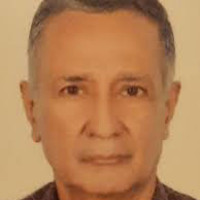- Tuesday, 17 February 2026
Right To Development
On the occasion of the South Asia International Book Fair (November 2023), China-South Asia Forum on Poverty Reduction and Development Cooperation is being organised to mark the warm start-up of the 2nd golden decade of the Belt and Road Initiative (BRI). Several reputed Nepali and Chinese agencies are joining hands to play respective role in managing knowledgeable deliverables of the Forum so important for our continuous Trans-Himalayan neighbourhood.
Policy makers, experts, scholars and practitioners from South Asian countries and China are expected to participate in the Forum deliberations. After Prime Minister Pushpa Kamal Dahal Prachanda’s recent visit to China and the 3rd BRI Cooperation Forum in Beijing, the BRI is much inclusively reshaped taking roots, adapting to the local geo-ecological and socio-economic needs and aspiration of the regional countries.
According to a UNDP source, on an average, nearly 31.7 per cent of South Asia (around 433 million people) is living in abject poverty. In the region, poverty has invariably been a consequence of inequality as the wealth and power are concentrated in a small minority. As such, South Asia region-wide poverty is the brutal and shameless outcome of injustice institutionalising a vicious circle of poverty-making the poor trapped into deprivation. The poor are in food and housing insecurity, low income, lack quality healthcare and education, lack economic opportunity, and are deprived of building wealth.
On the other side of the Himalaya, it was on February 25, 2021 when China was able to declare its liberation from extreme poverty for the first time in history. China's poverty reduction approach in President Xi Jinping’s governance plan and programme was primarily based on breaking the vicious circle of poverty first. For this purpose, foremost was the methodical identification and elimination of barriers that prevent the poor from becoming rich. This followed adopting a proverbial sustainable knowhow solution like "Give a man the knowhow to fish and he feeds him in the days to come".
Enriching the poor with knowhow and accruing benefits empower them by delivering justice that liberates them from hegemony of inequality. We must however note justice to enrich the poor is deliverable in a system socially and politically well governed. Neal constitution has ensured 31 rights, and in particular the fundamental socio-economic rights essentially gain substance when they are regularly and expeditiously enforceable - the horse must be before the cart. China's biggest poverty reduction lesson for us is to enrich the people first by eliminating the factors of inequality and in-equitability. It is generally unfathomable that a poor can rightfully fight a case in a situation that does not provide a level playing field.
Trans-Himalayan China and the South Asia, and Nepal could have the greatest and most feasible development cooperation deal that help enrich the poor in South Asia. The wisdom must be enriching the poor first through social, economic and agricultural reform and development boosting cooperative and self-employment. History has informed us that people in the state of prosperity can ask for justice, respect justice and enjoy fruits of distributive justice.
For South Asian Countries institutional and financial action instruments identified by China to implement the Global Development Initiative's 8 priority tasks compliment the BRI's development cooperation in the area of poverty reduction at the regional as well as bilateral level. We should appreciate China for a “developing together” pathway that cares for the development justice of the people. In words of Confucius, “in a country well-governed, poverty is something to be ashamed of. In a country badly governed, wealth is something to be ashamed.”
(The author is general secretary of China Study Centre Nepal.)









